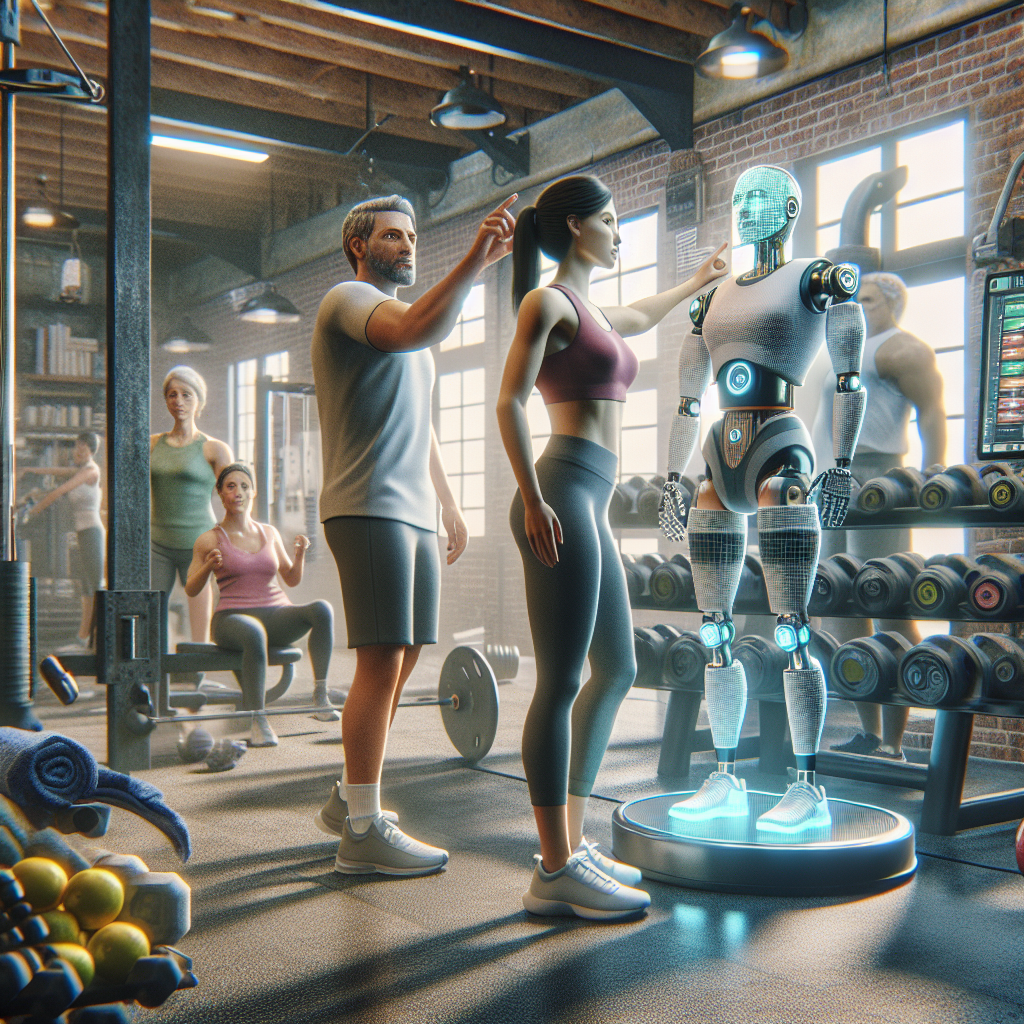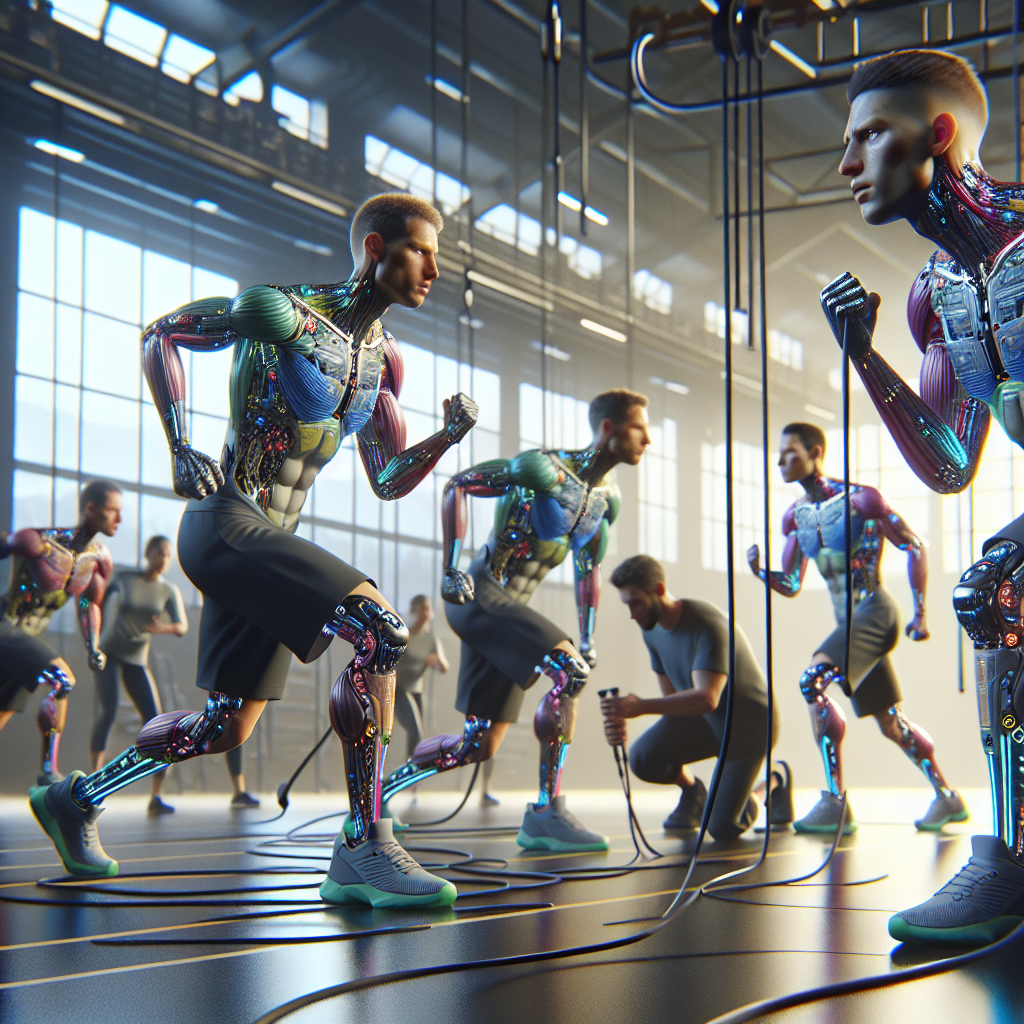In recent years, the integration of Artificial Intelligence (AI) into personalized fitness programs has revolutionized the way individuals approach health and wellness. By 2025, AI-driven fitness solutions are expected to become the norm, offering highly customized, data-driven workout plans that adapt in real-time to individual needs, preferences, and performance metrics. This transformation is driven by advances in machine learning, natural language processing, and wearable technology, which together facilitate a deeper understanding of human physiology and behavior. This article delves into the various facets of AI-driven personalized fitness programs, evaluating their impact on fitness enthusiasts, trainers, and the industry as a whole, while providing insights into future trends and challenges.
The Evolution of AI in Fitness
The Rise of Personalized Fitness Solutions
Personalization in fitness isn’t a new concept; however, the extent and precision of personalization offered by AI is unprecedented. Traditional fitness programs were often generic, designed for the average user without accounting for individual differences in physiology, goals, or lifestyle. With AI, fitness solutions can now be tailored to match the unique characteristics of each user.
From Generic to Tailored
Historically, fitness routines were largely one-size-fits-all, often based on broad categories like age or gender. In contrast, AI-driven programs utilize data from various sources—including health metrics, activity levels, and user feedback—to create workouts that are specifically tailored to individual goals, whether it be weight loss, muscle gain, or endurance improvement.
Technological Advances Driving AI in Fitness
Several technological advancements have been pivotal in the development of AI-driven fitness programs. These include:
- Wearable Technology: Devices like smartwatches and fitness trackers provide real-time data on heart rate, steps, calories burned, and more, allowing AI algorithms to adjust fitness plans on the fly.
- Machine Learning Algorithms: These algorithms analyze vast amounts of data to identify patterns and make predictions, improving the accuracy and effectiveness of personalized fitness recommendations.
- Natural Language Processing (NLP): NLP enables seamless interaction between users and AI systems, allowing users to receive guidance and feedback in a conversational manner.
Evaluating the Impact of AI-Driven Fitness Programs
Benefits for Individuals
AI-driven fitness programs offer numerous benefits to individuals seeking to improve their health and fitness:
Enhanced Motivation and Engagement
Personalized programs that adjust based on performance and preferences help maintain user motivation by setting achievable goals and providing feedback. Gamification elements, such as rewards for reaching milestones, further enhance engagement.
Improved Performance and Results
By tailoring workouts to the user’s specific needs, AI-driven programs can enhance performance and accelerate results. Data analytics helps pinpoint weaknesses and strengths, allowing for targeted improvements.
Benefits for Fitness Professionals
AI technology also provides significant advantages for fitness trainers and coaches:
Efficient Client Management
AI systems can automate routine tasks such as scheduling and tracking client progress, freeing up trainers to focus on personalized coaching and relationship building.
Data-Driven Insights
Access to detailed analytics allows trainers to make informed decisions about training regimens, leading to more effective and customized coaching strategies.
Industry-Wide Impacts
The integration of AI in fitness is reshaping the entire industry:
New Business Models
Subscription-based AI fitness platforms and virtual personal training are emerging as viable business models, offering scalable solutions that reach a broader audience.
Increased Accessibility
AI-driven programs democratize access to high-quality fitness coaching, making personalized training available to people regardless of their location or budget.
Challenges and Considerations
Data Privacy and Security
With the vast amount of personal data collected by AI systems, ensuring privacy and security is paramount. Users must be assured that their data is protected and used responsibly.
Accuracy and Reliability
While AI has made significant strides, the accuracy of fitness recommendations depends heavily on the quality of data and algorithms. Continuous monitoring and updates are necessary to maintain reliability.
Human Element in AI-Driven Fitness
Despite advances in AI, the human element remains crucial in fitness. A balance must be struck between AI recommendations and human intuition and experience, ensuring that programs are not overly reliant on technology.
Future Trends in AI-Driven Fitness
Integration with Healthcare
The convergence of fitness and healthcare is likely to grow, with AI systems integrating medical data to provide holistic health and wellness solutions.
Advancements in AI Technology
Ongoing advancements in AI, such as enhanced NLP and emotion recognition, will allow for even more personalized and adaptive fitness experiences.
Conclusion
AI-driven personalized fitness programs are transforming the landscape of health and wellness, offering unprecedented levels of customization and engagement. While challenges remain, the potential benefits for individuals, professionals, and the industry are substantial. As technology continues to evolve, AI will play an increasingly central role in helping people achieve their fitness goals, paving the way for a healthier future.
Statistics and Data Overview
To illustrate the impact and potential of AI-driven fitness programs, consider the following statistics:
| Aspect | Statistic |
|---|---|
| Global Fitness App Market Growth | Projected to reach $14.7 billion by 2026, growing at a CAGR of 23.5%. |
| Wearable Technology Adoption | Expected to reach over 1 billion devices by 2025. |
| AI in Healthcare | Market size projected to exceed $45 billion by 2026. |
Resources and Further Reading
For those interested in exploring the topic further, consider the following resources:
- World Health Organization – Global health trends and data.
- Statista – Comprehensive statistics on fitness and technology markets.
- Nature – Articles and papers on AI and machine learning advancements.
Transform Your Fitness Journey Today!
Experience the Future of Fitness with PurelyFit
Say goodbye to expensive trainers and confusing diet plans. With PurelyFit, you can achieve your fitness goals faster and more efficiently, all from the comfort of your home. Our AI-powered workouts are tailored to your specific needs, ensuring you get the most out of every session. Explore over 600,000 recipes that cater to every lifestyle and dietary requirement, and watch as your personalized nutrition plan adapts to your progress in real time.
Why Wait?
Revolutionize your fitness journey with smarter-than-your-coach technology. Join thousands of others who are transforming their lives with PurelyFit’s cutting-edge AI solutions. Start your journey today and see the difference personalized, intelligent fitness can make.
Get Started Now!
Embrace a healthier, fitter you with AI-driven workouts and nutrition plans that work. Take the first step towards achieving your goals and let PurelyFit guide you every step of the way. Your transformation begins today!












